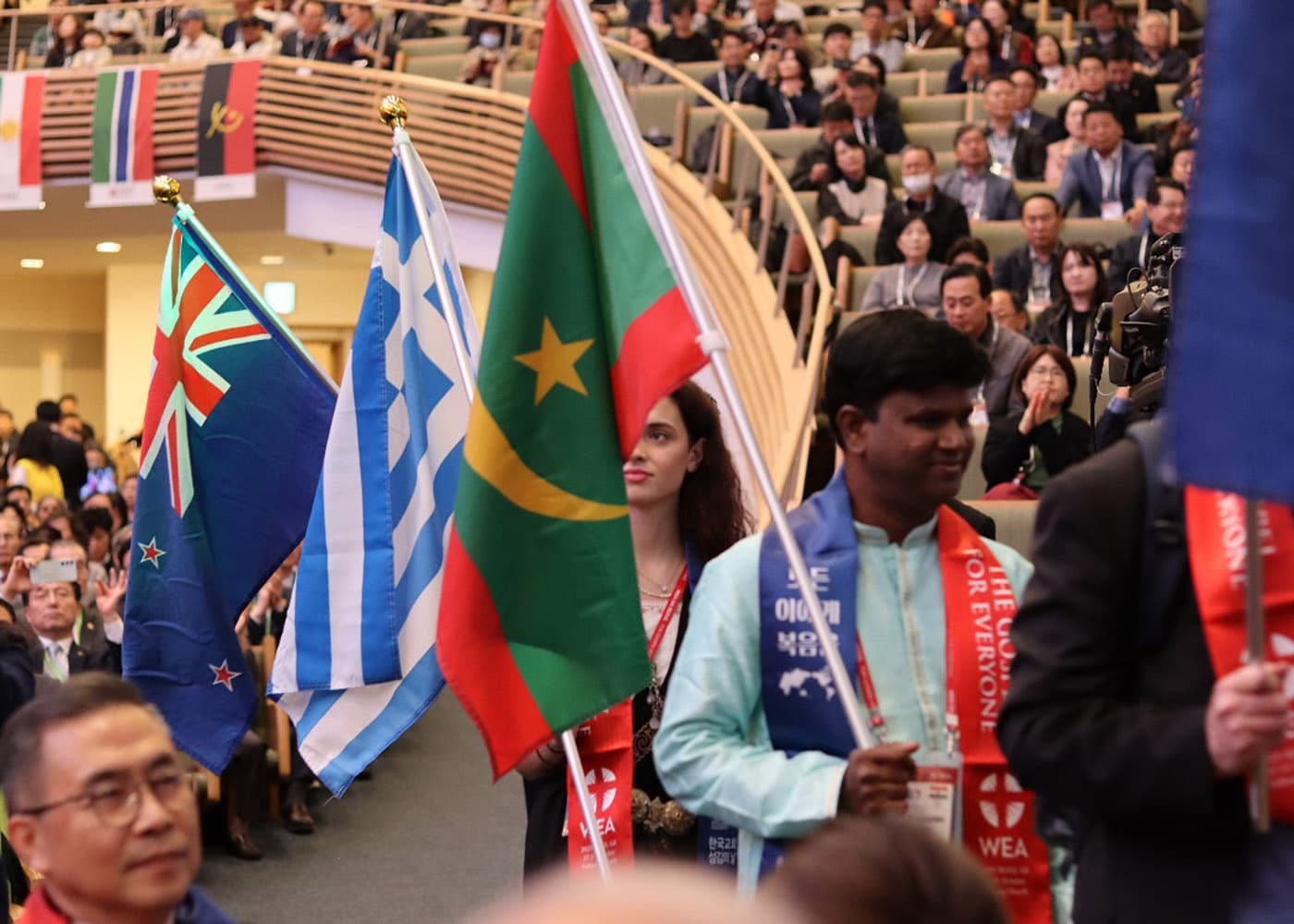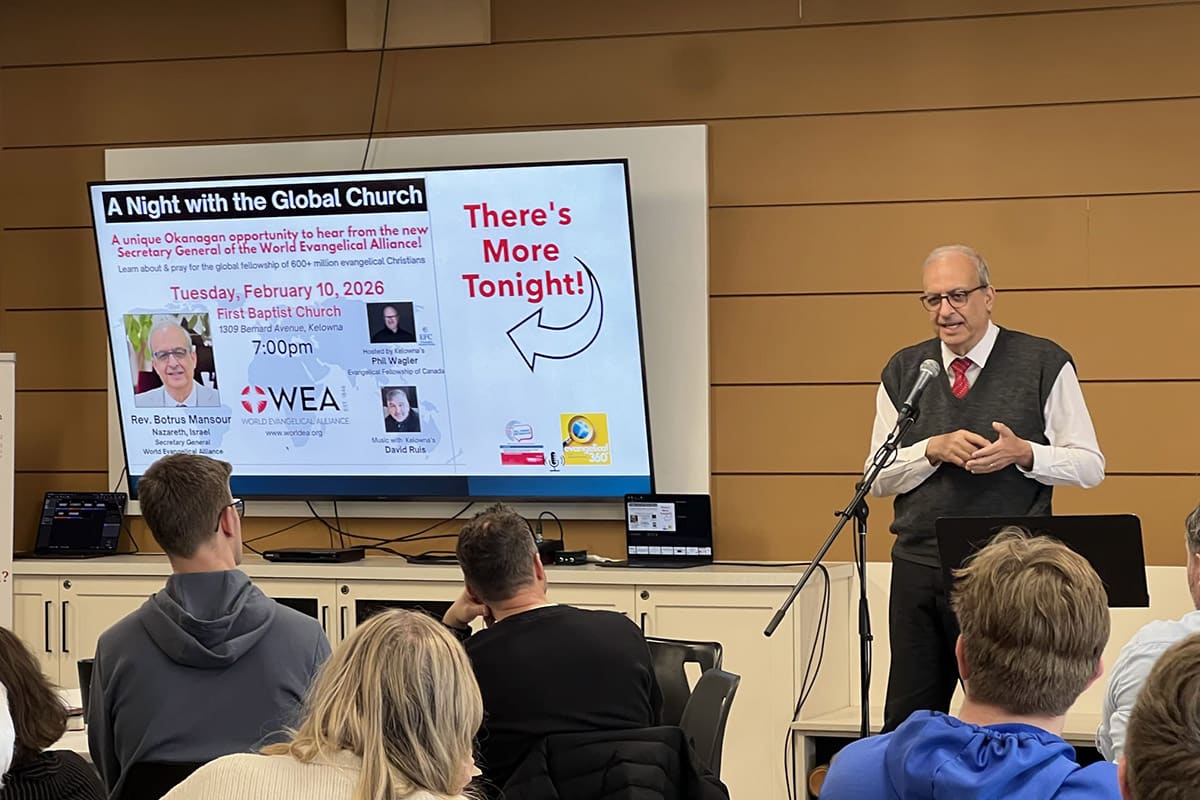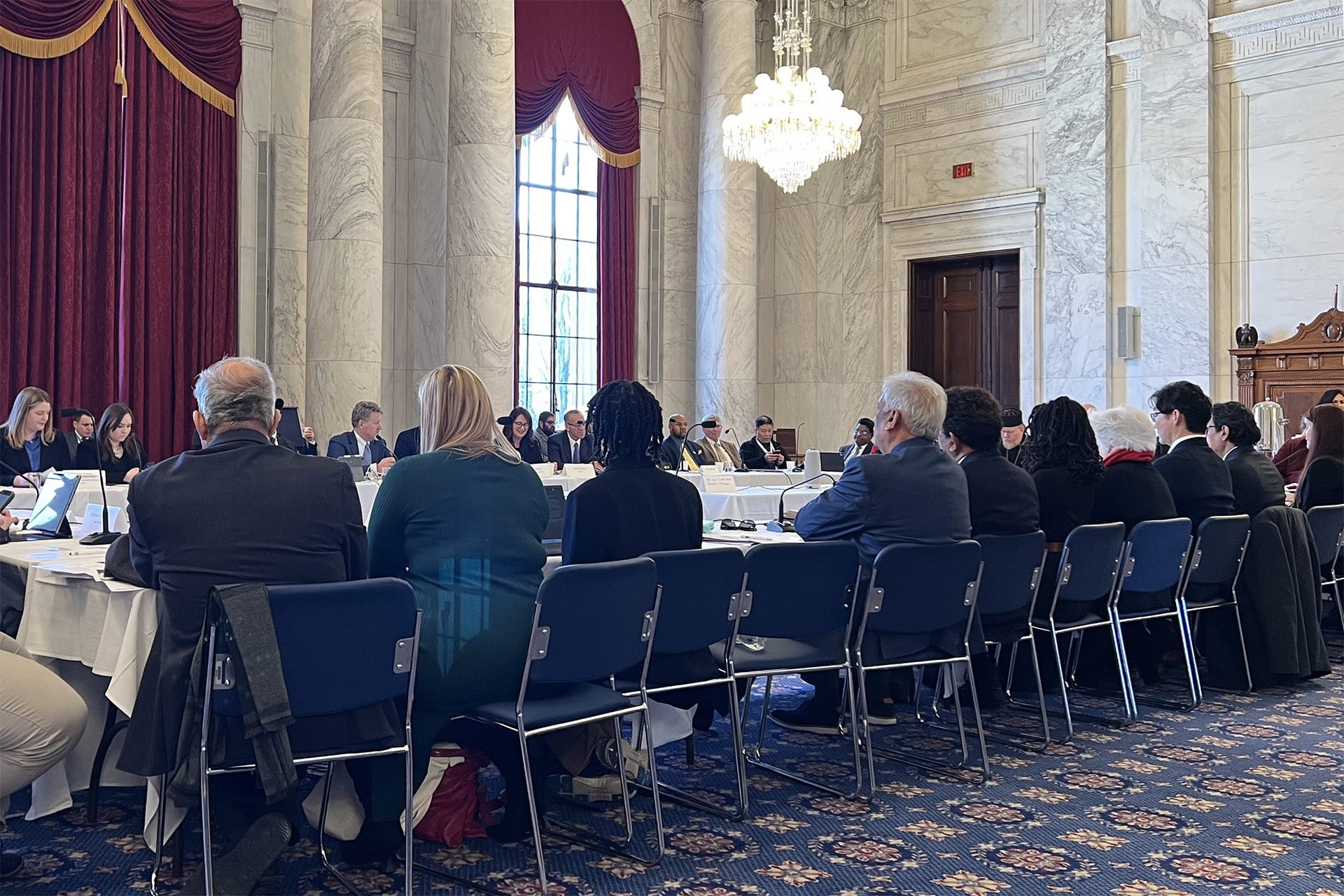In response to recent theological and organizational critiques against Executive Chair Dr. Goodwill Shana, the World Evangelical Alliance (WEA) provides the following clarifications.
Firstly, the Board and leadership believe it’s healthy to raise concerns and issues regarding Christian leadership at a family, church, community, national, and international level in a world where moral and ethical failure has become an increasing feature of the church. Therefore, the WEA welcomes scrutiny and the opportunity to address concerns.
Below is a point-by-point response to the four major allegations made against Dr. Shana by the Christian Council of Korea (CCK) on 17 June during a press conference.
Allegation of leading the New Apostolic Movement (NAR) in Zimbabwe
Dr. Shana does not identify with or promote the theology or governance structures associated with the New Apostolic Reformation (NAR) as advanced by figures such as C. Peter Wagner. While Dr. Shana has been referred to using titles such as ‘Apostle’ or ‘Bishop’ in some church contexts, these titles are functional within African and global Pentecostal-charismatic leadership models. They are not claims of restored apostolic authority as defined by NAR. Dr. Shana’s theological stance emphasizes personal discipleship and missional engagement in a lost society, prophetic justice and societal transformation, not dominionist or restored governance models.
Dr. Shana believes that titles are not as important as character, modeled discipleship, and the fruit of ministry, and has never insisted on titles.
His honorary doctorate reflects a recognition of service, not a claim to formal academic theological training. He has built his leadership on decades of pastoral and civic engagement across African denominational boundaries, in alignment with historic evangelical values. His main area of contribution has been informed by his legal background and experience in strategic, organizational, national, and transformative leadership. Dr. Shana recognizes the need for this to be complemented and guided by persons more theologically qualified than he is. This has not diminished his personal and public commitment to fundamental evangelical doctrines, as much theological education is not always proof of adherence to basic evangelicalism. This has been evident in many global theological settings.
His primary role as Executive Chair of the WEA Board is to guide board deliberations with input from various experts, including theologians of global repute. While the theological perspective is important, the role of the board chair does not demand one to be a theologian because theological experts and inputs reside in other members of the Board and other theological accountability mechanisms in WEA.
The WEA Chair or Executive Chair is not the ‘Pope’ or equivalent of the Pope. The role has no authoritative official or personal power in doctrinal matters in the WEA. Instead, the Chair is guided and informed by experts and theologians in matters of scripture and doctrine.
Allegation of religious pluralism through ecumenical leadership
Dr. Shana’s involvement with the Zimbabwe Heads of Christian Denominations (ZHOCD) resulted from his official role as president of the Evangelical Fellowship of Zimbabwe. This was a role already defined before his tenure as president and was grounded in a call for moral leadership, national healing, and biblical justice. ZHOCD is a civic platform where Christian leaders, despite theological differences, have collaboratively addressed national crises that were threatening to plunge Zimbabwe into unmitigated violence, chaos, and civil war. Participation in ZHOCD does not equate to theological endorsement of every member body. Instead, it reflects a biblical model of prophetic engagement in public life, as seen in figures like Daniel and Joseph, who served in religiously plural contexts without compromise.
Allegation of syncretism through association with UDACIZA
While UDACIZA represents churches with differing theological views, including some that integrate African traditional beliefs, Dr. Shana’s national structural engagement was driven by a desire to promote peace, dialogue, and national unity in a fractured context. Engagement is not an endorsement. There is no record of Dr. Shana adopting or promoting unbiblical syncretism or Old Testament-only theology. His long-standing evangelical commitments—rooted in the authority of scripture and the centrality of Christ—remain clear in his teaching and public ministry. In fact, there is a record to show that Dr Shana championed the cause of evangelicalism in calling the leadership of UDACIZA to embrace Biblical authority and leadership accountability and abandon unhealthy and controversial practices. A thorough engagement with the EFZ or UDACIZA would have revealed a clearer and more accurate perspective than has been provided by the CCK. Further, this engagement with UDACIZA is not recent and ongoing but was only during his tenure as President of the EFZ as mandated by the EFZ National Executive Committee.
Allegation of inadequate theological orthodoxy
Dr. Shana is widely recognized across Africa and the global South as a faithful evangelical leader committed to the gospel of Jesus Christ. While Dr. Shana does not hold formal academic theological credentials, we affirm that biblical leadership has always been rooted in calling, character, and fruit — not credentials alone. Like Peter and David in the scriptures, Dr. Shana’s ministry has been shaped in the fields of pastoral leadership, national unity, and gospel proclamation. This leadership credibility and stature have been recognized and affirmed through the rigor of leadership scrutiny and selection at national, continental, and global levels, leading to his various positions.
At an African continental level with AEA, Dr. Shana has affirmed and advocated for formal, non-formal and informal theological education through ACTEA, AIU, and BEST( Bangui Evangelical Institution) as well as theological training for pastors in Zimbabwe through Training of Pastors Association of Zimbabwe( TOPAZ). He is also part of a broader leadership team within the WEA that includes scholars and theologians committed to doctrinal integrity and evangelical faithfulness.
Conclusion
The World Evangelical Alliance affirms theological diversity within gospel-centered orthodoxy and values contributions from leaders whose training has come through decades of lived pastoral and spiritual service.
Dr. Shana has led the charge in recognizing that the WEA needs to re-imagine itself and its future configuration, including clarity on constitutional, policy, leadership, and structural issues that will make it a better organization in managing its unity in diversity.
The vision for the 2025 WEA General Assembly is to reach every person with the gospel of Jesus by 2033—through unity, mutual trust, and contextualized witness. We need each other to reach everyone for Christ and the WEA recognizes and values the Korean church’s vital role in this – from Pyongyang’s first revival to today’s sending church. We, therefore, remain committed to dialogue with our Korean brothers and sisters, inviting mutual discernment and shared global mission.





Stay Connected